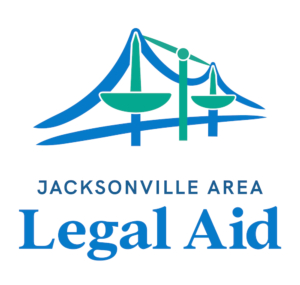
JACKSONVILLE, Fla., Feb. 27, 2020 – Three civil legal aid organizations this week reached a settlement agreement with the Florida Department of Children and Families and the Florida Agency for Health Care Administration that will ensure Medicaid beneficiaries transitioning out of state adoption assistance or federal disability benefit eligibility will receive a timely review to ensure their Medicaid coverage continues if they remain eligible under other criteria.
The agreement also requires that those found ineligible will receive adequate notice of the right to a hearing.
“Medicaid is critical in keeping all Floridians with disabilities healthy and safe,” said Peter Sleasman, interim executive director of Disability Rights Florida. “This settlement agreement ensures that individuals with disabilities will receive a fair assessment of their eligibility and the opportunity to have full and equal participation in society.”
In administering Florida’s Medicaid program on behalf of AHCA, DCF had, on a statewide basis, failed to provide federally guaranteed benefits to individuals whose eligibility criteria had changed but who nonetheless remained eligible for Medicaid. This breakdown had put beneficiaries with disabilities and with serious conditions including cystic fibrosis, cerebral palsy, epilepsy and schizophrenia, at risk of irreparable harm.
After requesting that DCF reform the system without getting a response, Florida Health Justice Project, Disability Rights Florida, and the National Center for Law and Economic Justice filed a class action lawsuit in August seeking to force DCF to rectify the problem. Jacksonville Area Legal Aid provided technical and financial support for the lawsuit.
The settlement agreement stipulates that it is not a class action settlement but that it “is intended to resolve the specific issues discussed herein on a statewide basis.”
According to the settlement agreement, DCF has to develop a system to ensure reviews are conducted before stripping Medicaid from those aging out of adoption assistance benefits. The agency also is required to automate its eligibility determination system for individuals with disabilities whose federal Supplemental Security Income is terminated. The settlement sets a target date of April 30 for the automation project. U.S. District Judge Brian J. Davis of the Middle District of Florida agreed to retain jurisdiction to enforce the terms of the settlement agreement for one year from the date of the executed agreement.
In addition, the settlement requires DCF to provide staff training for those conducting eligibility reviews, update its guidance materials, implement corrective action for those affected, and modify its notices of Medicaid termination. The notices must now include the date of Medicaid termination for those losing SSI benefits and a statement regarding DCF’s obligation to provide 10 days’ prior notice before terminating Medicaid benefits.
Katy DeBriere, legal director of Florida Health Justice Project, expressed appreciation that the agencies readily agreed to the remedies outlined in the settlement, which include payment of outstanding medical bills for those adversely affected.
“We appreciated the willingness of DCF and AHCA to work with us to quickly achieve statewide relief through this settlement, including corrective action for individuals who did not receive an ex parte review from January 2019 on,” DeBriere said. “Those whose Medicaid eligibility is reinstated because they had been wrongfully terminated will be given the opportunity to have any outstanding medical bills satisfied through AHCA. That will be welcome relief to affected Floridians.”
Federal law requires state Medicaid agencies to continue to provide coverage until a beneficiary has been determined to be ineligible under all eligibility categories. And DCF has to provide notice and an opportunity for a fair hearing to anyone whose Medicaid benefits are terminated.
The suit had two named plaintiffs: Clayton Harrell of Jacksonville, who lost his Medicaid benefits last July upon turning 18, which made him ineligible for Medicaid through the state’s adoption assistance program; and Lakeland resident Austin Trueblood, who is diagnosed with Down Syndrome and had his Florida Medicaid benefits cut when the Social Security Administration approved his application for Disabled Adult Child (DAC) benefits, thus making him ineligible for the Supplemental Security Income that had originally qualified him for Florida Medicaid.
Had DCF conducted the federally mandated review prior to cutting their Medicaid benefits, the agency would have discovered that both remained eligible for Medicaid under other criteria.
About Florida Health Justice Project
A new nonprofit advocacy organization, the Florida Health Justice Project seeks to improve access to affordable health care for Floridians, with a focus on vulnerable low-income populations. FHJP expands the advocacy community’s capacity to resolve individual access issues and educate consumers; identify and address systemic barriers to healthcare; and protect Medicaid and other safety-net programs.
About Jacksonville Area Legal Aid
The mission of Jacksonville Area Legal Aid, Inc. is to obtain and provide high-quality legal assistance to
low-income and other special-need groups and to stimulate and empower groups of poor people to
accomplish energetic and affirmative advocacy, all to alleviate the circumstances, incidence and causes
of poverty.
About Disability Rights Florida
Disability Rights Florida was founded in 1977 as the statewide designated protection and advocacy system for individuals with disabilities in the State of Florida. We provide free legal and advocacy services to people with disabilities through the authority and responsibility of nine federal grants. Our mission is to advance the quality of life, dignity, equality, self-determination, and freedom of choice for people with disabilities.
About National Center for Law and Economic Justice
The mission of the National Center for Law and Economic Justice is to advance the cause of economic justice for low-income families, individuals, and communities across the country.
###



